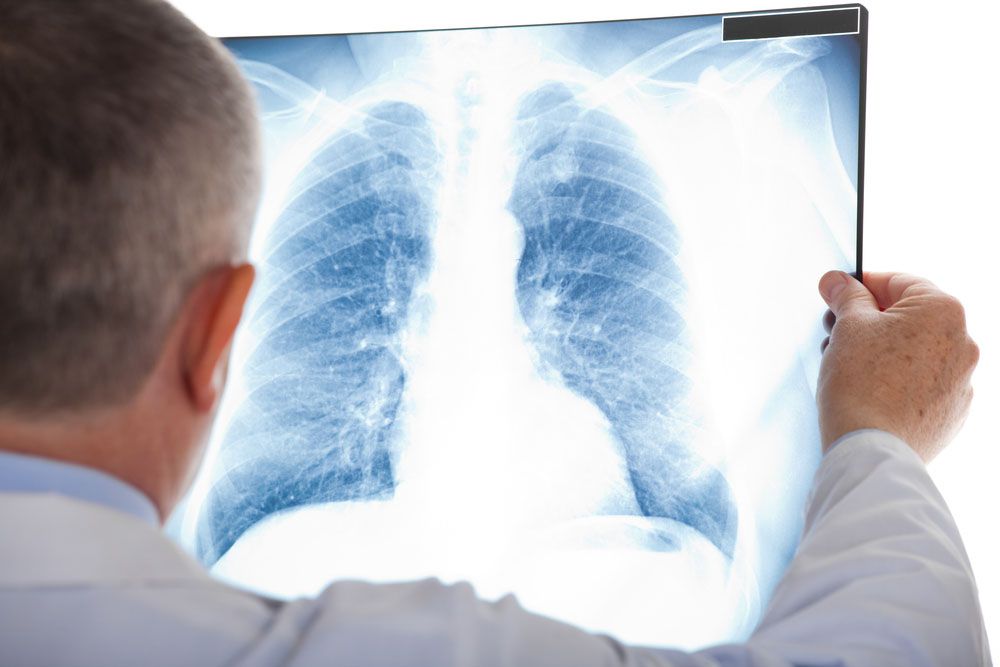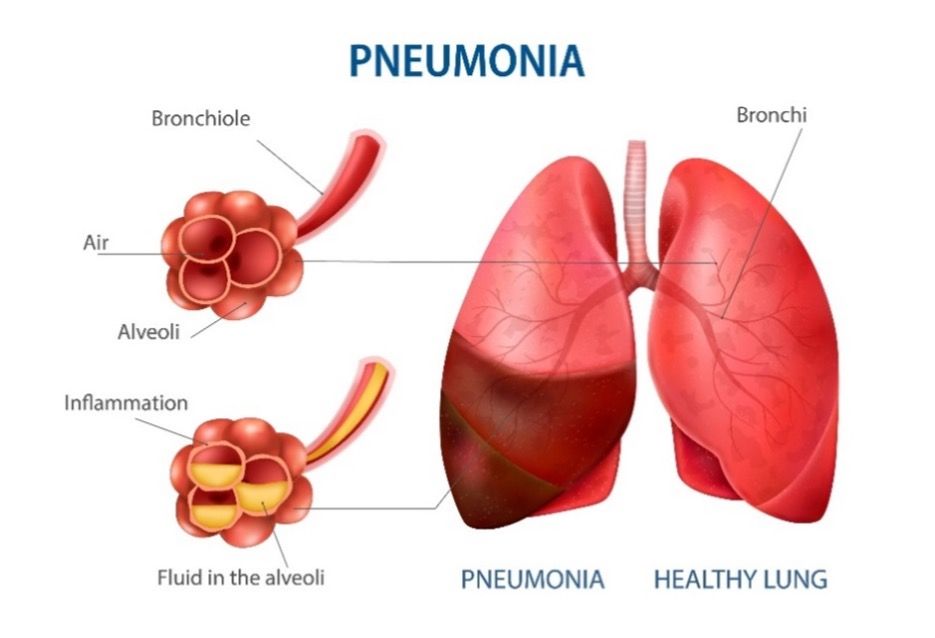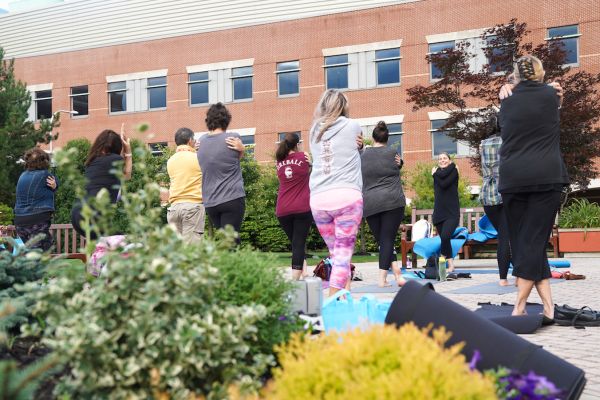Simple steps for breathing easier after surgery
If your treatment plan includes surgery, you should know that your recovery will be slower if you get pneumonia. Your medical team will take steps to prevent it, but you play an important role, too. Here’s what you need to know.
What is pneumonia?
Pneumonia is an infection that causes inflammation in the tiny airways (bronchioles) and air sacs (alveoli) in your lungs. Normally the alveoli fill with air when you breathe, but when you have pneumonia, they have fluid and pus in them, so air has a hard time getting in and breathing becomes painful. Pneumonia is usually caused by bacteria, but it can also be caused by viruses, fungi and parasites.
Who is at risk?
Certain factors can increase your risk of pneumonia, including:
- Age. Under age 2 or over age 65
- Environment or occupation. Spending a lot of time in crowded places (military barracks, prison, homeless shelters or nursing homes); locations where you breathe in air pollution or toxic fumes; and places where you are exposed to birds/animals that carry pneumonia-causing germs (poultry processing plant, veterinary clinic or pet store)
- Habits. Smoking, excessive alcohol consumption or using drugs that cause sedation (opioids, tranquilizers)
- Medical procedures. Hospitalization, general anesthesia, surgery, being on a ventilator
- Medical conditions that weaken your immune system (HIV, chemotherapy, long-term use of steroid drugs such as prednisone) or your ability to cough/swallow (head injury, stroke, Parkinson’s, asthma COPD).
- Serious conditions such as diabetes, heart failure, sickle cell disease or liver or kidney disease
Vaccination to prevent pneumonia
If you are at high risk for pneumonia, your doctor may have already suggested you get vaccinated against pneumococcus bacteria, which can cause many illnesses, including pneumonia. Several vaccines are available. Check the Centers for Disease Control and Prevention’s (CDC) website for more information on types of pneumonia vaccines and who and when to get them. Other vaccines that may also help prevent diseases that can lead to pneumonia include Haemophilus influenzae type b (Hib) vaccine, pertussis (whooping cough), varicella (chickenpox/shingles), measles and influenza. Vaccination can help protect you if you have to be hospitalized in the future.
How does surgery increase my risk?
When you breathe in, your body warms and moistens the air, and mucus traps dirt and germs. The cilia (hair-like projections lining your airways) sweep dirt and germs toward your mouth, where they can be eliminated. General anesthesia and the endotracheal tube inserted in your throat during surgery can cause the normal secretions in your airways to thicken or dry up, preventing the cilia from doing their job.
What can I do?
Preventing germy mucus from collecting in your airways and causing pneumonia is important. The number one way to prevent the spread of infection is to wash your hands. Everyone should wash their hands before entering your hospital room (including staff), after using the bathroom, after blowing their nose or coughing, before and after eating, and whenever hands are dirty.
- Incentive spirometer. When awake, use your incentive spirometer 10 times every hour. Your nurse will show you how.
- Deep breathing and coughing may be painful after abdominal surgery. If so, talk to your nurse about ways to control the pain so you can do your exercises.
- Oral care. Removing germs from your mouth keeps them from traveling down your airway to your lungs. The inside of your mouth should be cleaned on a regular basis with a toothbrush or antiseptic rinse. Your doctor may give you a prescription mouthwash to use. Do NOT smoke or use tobacco products.
- Understanding. Read and follow instructions from your healthcare team.
- Get out of bed. As soon as your nurse says it’s OK, move to a chair or take frequent walks if possible.
- Head of bed elevated. Keep the head of your bed at a 30 to 45 degree angle.
Watch for symptoms of pneumonia
Report any signs and symptoms of pneumonia to your nurse or physician.
- Fever of 100.4°F (38°C) or higher (Older adults or people with a weakened immune system may have a lower than normal body temperature if they have pneumonia.)
- Shaking chills, sweating
- Cough, usually producing mucus
- Chest pain (may get worse when coughing or taking a deep breath)
- Shortness of breath, painful breathing or rapid breathing
- Fatigue
- Gastrointestinal symptoms, such as loss of appetite, nausea, vomiting and/or diarrhea
- Sudden change in mental status (older adults)
Treatment for pneumonia
If you develop pneumonia, your treatment will depend on the type, cause and severity of the pneumonia, and may include antibiotics, antiviral or antifungal medications. If your symptoms are severe or you are at higher risk of complications such as bacteremia (infection spreads into the bloodstream), lung abscess, kidney failure or respiratory failure, you may need to be treated in the hospital. Some people feel better within a week. For other people, it can take a month or more to recover from pneumonia.




